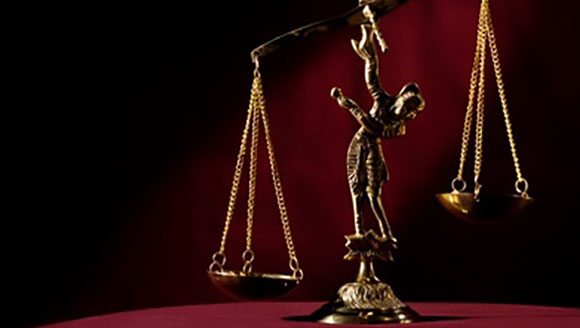Election Protection: Safeguarding the Vote to Defend All Rights
On January 3, 2019, the Congressional Black Caucus swore in its largest ever class of 55 members. The class includes five members who chair powerful congressional committees, setting policy in key areas such as financial services, homeland security, science and technology, education and government oversight.
Our ranks also include three members who are part of the Democratic leadership team charged with setting the political and policy agenda for the entire House of Representatives. Without a doubt, this is the most powerful and influential Black caucus to ever exist since we formed nearly 50 years ago with a mission of serving as the conscience of the Congress.
From the need to help create more Black wealth to reversing the devastating impacts of mass incarceration, there are no shortage of issues that demand the attention and collective power of the Black caucus to confront. Each issue is of critical importance—but protecting and expanding voting rights stands above all others.
Voting rights must be the top agenda item. If we allow voter suppression to dilute Black America’s political power, we cannot build the coalitions necessary to advance the policies that will address all other problems confronting the Black community. The Black caucus is working together on a series of measures to ensure that every vote everywhere is counted, and every American who wants to vote can vote without intimidation.
The heart of our efforts are centered around taking immediate action to restore the pre-clearance provisions of the 1965 Voting Rights Act (VRA). In a 2013 decision, the Supreme Court gutted pre-clearance from the VRA, ruling in Shelby v. Holder that states and jurisdictions with histories of voter discrimination did not have to obtain pre-clearance from the federal government to make changes to elections laws or procedures governing how elections would be administered.
The court made its ruling in spite of mounting evidence that the VRA was an effective deterrent to voter suppression and a key protector of the right of African Americans to fully participate in the electoral process. For example, from 1998 to 2013, nearly 90 state-proposed election changes were blocked, with hundreds more either never proposed or withdrawn entirely, because they could not pass muster under the pre-clearance provisions set forth in the VRA and Justice Department oversight.
Justice Ruth Bader Gingsburg said it best in her dissenting opinion, writing that “throwing out pre-clearance when it has worked and is continuing to work to stop discriminatory changes is like throwing away your umbrella in a rainstorm because you are not getting wet.”
Following the Shelby ruling, a torrent of unjust laws and practices were unleashed to suppress voting rights, with some measures from states like North Carolina described as targeting “African Americans with almost surgical precision.” Texas implemented perhaps the strictest voter ID law, which allowed a gun permit to suffice as identification to vote but not a student ID. This practice had previously been denied when pre-clearance provisions were in effect. Georgia’s then secretary of state, who happened to be running for governor at the time, put more than 50,000 voter registrations on hold, more than 70 percent of which belonged to African-American voters. Across the nation, local officials have closed hundreds of polling locations, shortened early voting and implemented other measures to restrict voting. Many of these measures were previously denied or never attempted because of the VRA’s pre-clearance provisions.
Pre-clearance must be restored and a record must be created to show the Supreme Court the error of its way in thinking that America has reached the day when African Americans no longer need protections to vote without intimidation.
The Black caucus is assuming this responsibility under the leadership of members like Congresswoman Marcia Fudge of Ohio, Congresswoman Terri Sewell of Alabama, Congressman John Lewis of Georgia and Congressman Jim Clyburn of South Carolina.
Congresswoman Fudge serves as Chairwoman of the House Administration Subcommittee on Elections. As chair, Congresswoman Fudge is traveling the country and holding hearings to develop an official record of concern in support of restoring the pre-clearance provisions of the VRA. Her work will directly refute comments from Chief Justice John Roberts, who wrote in 2013 for the court’s majority, that “nearly 50 years later, things have changed dramatically” since the VRA was passed in 1965. We know that is not the case.
Congresswoman Sewell has introduced H.R. 4, the Voting Rights Advancement Act, which would stop the flood of egregious voter suppression tactics we have seen since 2013. Congresswoman Sewell’s legislation would restore the VRA by developing the process to determine which states must adhere to pre-clearance and ensure local governments are not engaging in discriminatory voter suppression.
Additionally, members of the Black caucus have been active in the formulation of H.R. 1, the For the People Act of 2019, which among other items would create new national automatic voter registration requirements so more Americans are signed up to vote, enhance promotion of early voting and same day voter registration, make Election Day a national holiday and aid in recruiting and training more poll workers ahead of the 2020 elections to help reduce long lines at the polls.
At 55 members strong, the Black caucus represents a considerable bloc of power to help build bipartisan consensus to restore the VRA’s pre-clearance provisions and reduce barriers to voting. Traditionally, these have been bipartisan issues, with the VRA being extended or amended five times since 1965 under both Republican and Democratic administrations.
The Black caucus has made voting rights our north star because we cannot move forward effectively on any other issue until we first ensure African Americans can make their voices and priorities heard at the ballot box without fear and intimidation.


 Equality Index
Equality Index  Senate Report
Senate Report  2020 SOBA Essays
2020 SOBA Essays  2019 Report
2019 Report 